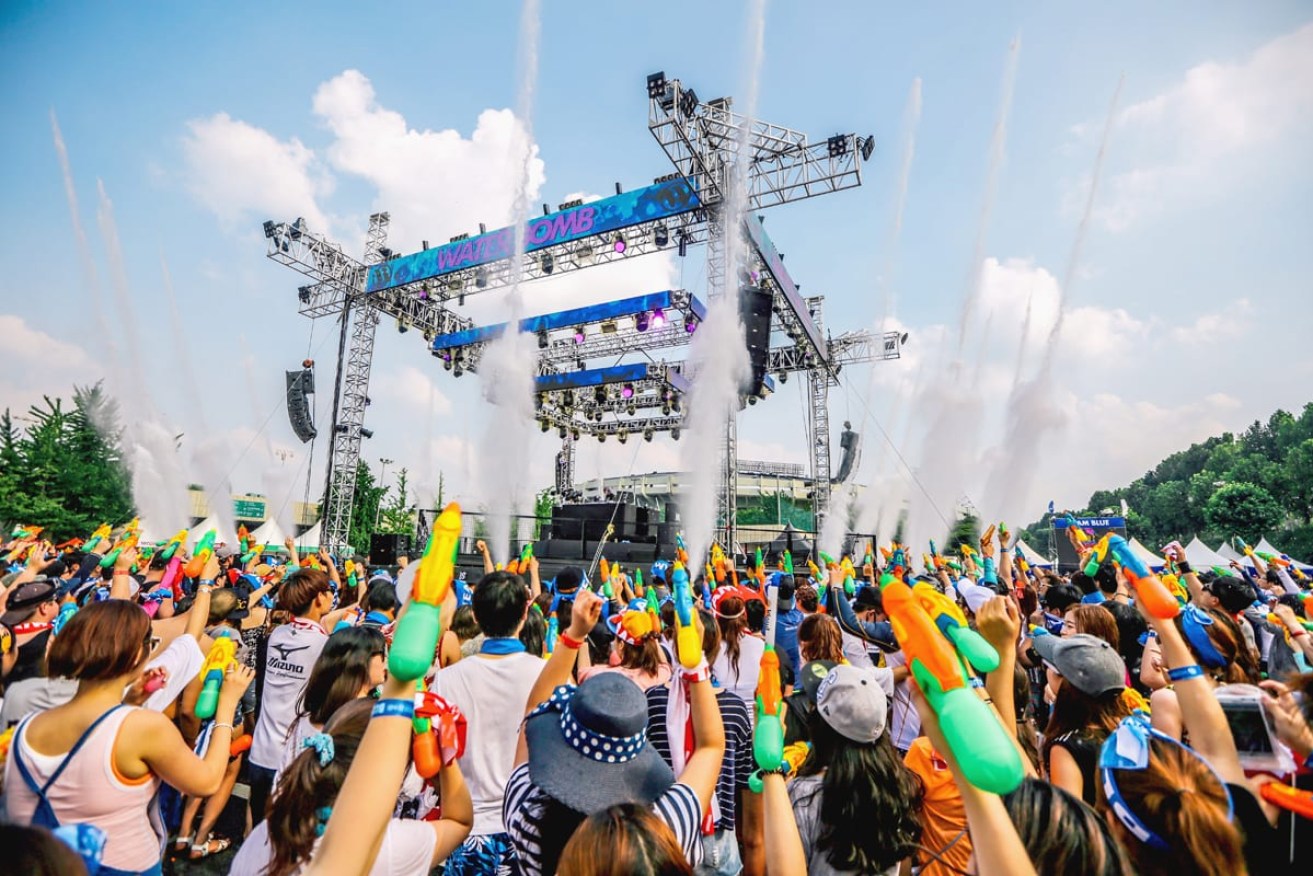Catch lightning in a bottle: Brisbane company cracks single-use plastics problem
Brisbane company BlueSky Beverages appears to have come up with a simple idea with perfect timing that may put a dent in the sales of single use plastics.


From festivals to school plays, BlueSky has opened a market for aluminium water bottles
The company came up with a technology to produce branded aluminium water bottles allowing companies to move away from plastics and ride the wave of sustainability.
Demand is up 1200 per cent since its launch in 2019 and the company has had to stop production of other lines just to keep up.
It also had to move to new premises at Yeerongpilly and has started crowdfunding for up to $500,000 on the Pledge Me website to provide capital for expanded production.
The capacity to produce the branded bottles is not new, but BlueSky has found a way to do it profitably in small runs as well as big ones.
“We are doing well because there are so many people out there willing to switch. If we were coming into the market four years ago, we would be still twiddling our thumbs. We have been blessed by timing,’’ founder Matt Isles said.
“We are at absolute capacity at the moment and we are having to manage our customers’ expectations at the moment.
“That’s why our little factory is bursting at the seams and we are holding back conversations with larger producers who are ready to go. We are not ready and we would not be able to fulfill their needs.
“We stopped production of everything else. We were doing cold brewed coffee in glass bottles and in November we paused it because we ran out of hours in the week and people on the floor.
“The demand for the water bottles was so big we were not in a position to do both so the coffee was put on hold, but we will bring it back.’’
He said there was demand from people who wanted to reduce plastic consumption and cut waste. At the moment the plastic bottle industry is worth about $1.5 billion in Australia and a lot of it is ending up in landfill.
The company’s vision is to prevent 15 million single-use bottles from reaching landfill and oceans by 2025 and it expects that demand would reach an estimated 36,000 units a week in the second half of 2021-22.
BlueSky devised a print-to-pallet technology that allowed it to produce even small production runs. Last week it did one for a mower shop in Cairns, but the new production strategy has been designed to allow it to deliver output of 500 units for the cafe or 500,000 units for major entertainment groups and retailers.
That means it can service a far greater proportion of the market such as takeaway food stores where it found that if the store used its own branding on the aluminium bottle they would also remove the plastic competitors from the fridge.
“Giving them that flexibility on the bottles meant they actively removed all of the plastic, which is a win-win,’’ Isles said
Given that the aluminium bottle is re-sealable and reusable it would seem a brave move from Blue Sky because consumers would not have to immediately replace the bottle which would normally cut down on repeat sales.
“You would think (that would be a problem) but it isn’t given there are over 700 million plastic water bottles sold in Australia each year,’’ Isles said.
“We are not even a fraction of that market yet.
“If we got to 4 or 5 per cent and people were hanging onto the bottles longer than we wanted it might be a problem, but the market is so huge and we would be getting 15 to 20 new inquiries every week.’’
The product has taken off in Sydney and Melbourne but ironically not in Brisbane. However, regional Queensland councils have come on board and Noosa Tourism was among its first customers.












